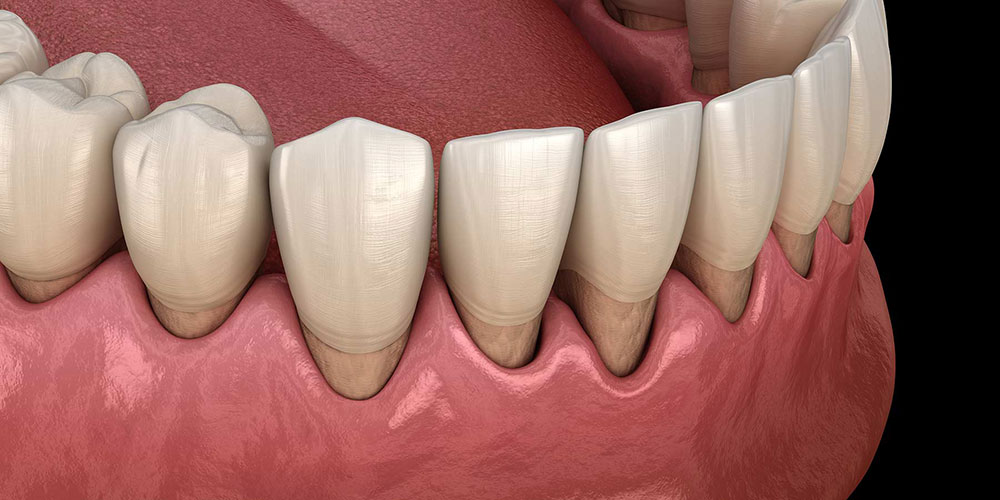Sunrise Dental knows that dental decay (caries) and periodontal (gum) disease are among the most common diseases affecting mankind. These diseases are preventable if you develop good oral habits and visit your dentist on a regular basis. It is our goal to guide you on the best ways to prevent these diseases on a daily basis and to offer the lowest possible prices at our offices to help you maintain a healthy smile.
Gum Disease
Gum Disease happens when the periodontal tissues, or gum tissues, that support your teeth are infected. It starts when plaque and other bacteria are irritating the tissues of your mouth. This is why it is very important to not only brush and floss twice a day but to also schedule your bi-yearly dental exams and cleaning. Our offices located all around Washington and Oregon, including the Spokane, Seattle, downtown, Hollywood, and Clackamas areas, can keep your oral health in tip-top shape.
Why Is Gum Diesease Important?
Your oral health is crucial to the overall health of you. Lots of toxins and bacteria enter your body through your mouth; the air you breathe, the food you eat. The bacteria in your mouth also can enter the bloodstream through damaged gum tissues. Dental patients should do everything they can to prevent gum disease, or maintain it from developing worse if you already have it.
Stages of Gum Disease
There are several stages of gum disease. The first stage is gingivitis and is the only stage of gum disease that is reversible. You may have gingivitis if you have red gums, swollen gums, bleeding gums, bad breath, and/or a foul taste in your mouth.
Periodontitis is the next stage of gum disease and is more serious. This develops when pockets form called periodontal pockets. Bacteria and other toxins begin to destroy to supporting bone and tissues around the teeth. This causes irreversible damage but can be completely controlled by getting back on track with your oral health.
What Causes Gum Disease?
- Tobacco use
- Alcohol use
- Improper oral hygiene
- Puberty
- Pregnancy
- Diabetes
- Heart disease
- Certain cancers
- Use of steroids
- Use of oral contraceptives
Gum disease should be avoided and maintaining the best oral hygiene is the only way to prevent gum disease. Call a Sunrise Dental office today to schedule your dental exam. We have many locations all over Washington and Oregon to help you stay on track with your oral health, including the Bridgeport, Beaverton, Chehalis, Salmon Creek, and Portland areas.

Please Call Us At: +1 (855) 467-8674
- Brush your teeth at least once per day, but two times is better. Brush in the morning when you awake, and at night before you go to sleep. When possible, after meals, rinse your mouth out with water.
- Floss once per day, usually towards the end of the day, to remove any particles and bacteria from between teeth.
- Eat healthy balanced meals, and avoid sugary snacks or sticky foods that can stick to teeth.
- Do not eat late night meals, and if you do, please make sure and brush before you go to bed.
- Do not smoke or use tobacco products. They can weaken and stain teeth permanently.
Have you ever put off having a dental procedure done because you were scared?
If so, you are not alone. Many people avoid getting dental work done because they have a fear of the unknown.
No one wants cavities when they visit the dentist, so it is important to practice good oral hygiene at home and get regular dental check-ups to catch any problems early before they turn into a dental filling.
After all, good oral hygiene will reduce the risk of cavities and eliminate the need for a dental filling. Do not put off your dental check-ups. Good oral hygiene is related to overall good health.
Visit a Sunrise Dental office today to keep your mouth in tip-top shape without any cavities or fillings.
If it has been determined by your dental professional that a filling is needed to repair a cavity there are a variety of different materials that can be used for filling teeth. The two most common are amalgam fillings or silver or mercury fillings, made up of silver, tin, copper, zinc, and mercury, and composite resin fillings known as white fillings, tooth-colored fillings, and direct veneers. Both are viable options, but only a dental professional can determine what the best option for your filling is.
The average life of a filling is about 12 years. It is important to visit your dentist regularly so that your fillings can be examined. Between dental check-ups, it is also important to maintain good oral hygiene to prevent decay from occurring under the filling.
If you have many fillings or very large fillings, your dentist may prescribe a fluoride gel you can use at home. You can also use rinses that lower the acid level of your mouth. A lower acid level reduces decay-causing bacteria. This can lead to fewer cavities and dental fillings in the future.
Call a Sunrise Dental office today to schedule your check-up. Don’t let something simple turn into something more serious. The friendly staff at Sunrise Dental can help you with any questions you have concerning dental fillings.
We have many locations in the Bellevue, SeaTac, Seattle, Downtown Seattle, Snohomish, Bothell, Mill Creek, Lynnwood, and Olympia areas with convenient hours to meet your needs.

Please Call Us At: +1 (855) 467-8674
- Brush your teeth at least once per day, but two times is better. Brush in the morning when you awake, and at night before you go to sleep. When possible, after meals, rinse your mouth out with water.
- Floss once per day, usually towards the end of the day, to remove any particles and bacteria from between teeth.
- Eat healthy balanced meals, and avoid sugary snacks or sticky foods that can stick to teeth.
- Do not eat late night meals, and if you do, please make sure and brush before you go to bed.
- Do not smoke or use tobacco products. They can weaken and stain teeth permanently.
Gum Disease
Sunrise Dental knows that dental decay (cavities) and periodontal (gum) disease are among the most common diseases affecting mankind. Gum Disease happens when the periodontal tissues, or gum tissues, that support your teeth are infected. after It starts when plaque and other bacteria are irritating the tissues of your mouth, and add call Sunrise Dental today to schedule your dental hygiene appointment.

What is periodontics and what does a periodontist do?
Periodontists treat gum diseases, perform surgeries, dental implant placement, and offer personalized oral hygiene plans to maintain healthy gums.
Prevent gum disease:
- Brush and Floss
- Quit Smoking
- Healthy Diet
- Manage Conditions
- Check-ups

What are the stages of gum disease and their treatments?
Gum disease stages:
- Gingivitis:
- Symptoms: Red, swollen gums; bleeding.
- Treatment: Better oral hygiene, regular cleanings.
- Periodontitis:
- Mild to Moderate:
- Symptoms: Pockets, bone loss.
- Treatment: Deep cleaning, medication, sometimes surgery.
- Advanced:
- Symptoms: Severe bone loss, loose teeth.
- Treatment: Surgical procedures, potential tooth extraction.
- Maintenance:
- After Treatment: Regular home care, dental check-ups.
- Mild to Moderate:
Best Dentists in Washington & Oregon
What is scaling and root planning, and when is it needed?
Scaling and root planing treats gum disease by removing plaque and smoothing root surfaces slightly below the gumline with the use of local anesthetic. They are needed for issues like inflammation, pocket formation, tartar buildup, bad breath, and tooth sensitivity. These procedures stop disease progression, promoting healing. Early intervention is key.
How is gum recession treated and can it be reversed?
- Gum recession cannot be fully reversed, but treatments like scaling and root planing, grafts, and good oral hygiene help manage it. Early detection is crucial; consult a dentist for signs like exposed roots or sensitivity. Various treatments can address it:
- Scaling and Root Planing: Removes plaque and tarter under the gumline to promote gum healing.
- Soft Tissue Grafts: Uses tissue to cover exposed roots and prevent further recession.
- Gum Grafting: Thickens existing gum tissue through grafts.
- Pinhole Surgical Technique (PST): Less invasive method to reposition existing gum tissue.
- Orthodontic Treatment: Repositions teeth to reduce forces on the gums.
- Good Oral Hygiene: Maintains gum health to prevent further recession.
Can gum disease lead to other health problems?
Gum disease may be linked to:
- Heart Disease
- Diabetes
- Respiratory Issues
- Rheumatoid Arthritis
- Pregnancy Complications
- Osteoporosis
- Alzheimer’s Disease
Maintaining good oral hygiene and prompt gum disease treatment is important for potential overall health benefits. Ongoing research aims to understand these connections better.

How often should I have professional cleanings for my gums?
Professional gum cleanings are recommended twice a year by the American Dental Association, but your dentist may suggest a different frequency based on factors such as gum health, risk of gum disease, medical conditions, tobacco use, pregnancy, or age. Regular communication with your dentist will help determine the optimal cleaning schedule for your specific oral health needs.
How do I care for my gums after periodontal procedures?
After periodontal procedures:
- Practice Good Oral Hygiene
- Rinsing (ask your Dentist which mouthwash is recommended)
- Avoid Smoking
- Soft & Healthy Diet
- Limit heavy lifting or vigorous exercise
- Follow-Up Appointments
- Pain Management
- Voice Concerns to your Provider
Follow all Post-Operative Instructions from your Provider
